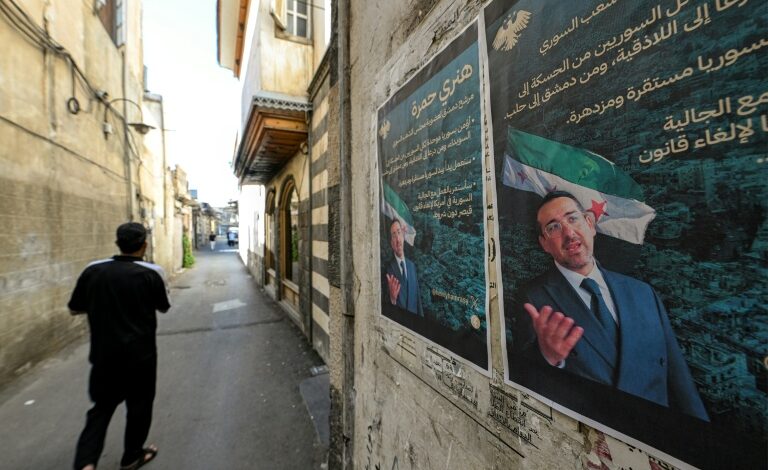Syria Launches First Post-Assad Parliament Amid Controversy

UPDATE: Syria is set to select members for its first post-Assad parliament on Sunday, July 15, 2025, amid allegations of an undemocratic process. This crucial assembly aims to consolidate power under interim leader Ahmed al-Sharaa, who has already appointed a third of the members himself.
The new parliament’s formation comes after the ousting of longtime ruler Bashar al-Assad in December, following more than 13 years of civil war. The assembly will consist of 210 members, with 70 representatives directly appointed by Sharaa. Local committees, also appointed by Sharaa’s electoral commission, will select the remaining members. This structure raises immediate concerns about representation and legitimacy, as only 14 percent of the 1,500 candidates are women.
Crucially, regions such as southern Syria’s Druze-majority Sweida and the Kurdish-held northeast are excluded from this electoral process, leaving 32 seats vacant. Local voices are expressing skepticism; Louay al-Arfi, a retired civil servant, stated, “These aren’t real elections… we want direct elections to follow.”
The assembly operates under a temporary constitution established in March, with a 30-month renewable mandate. Sharaa claims it is impractical to organize direct elections currently due to the significant number of displaced Syrians who lack documentation. Approximately 6,000 people are participating in the selection process on Sunday, with preliminary results expected shortly after.
Critics, including human rights organizations, argue that this selection method centralizes power in Sharaa’s hands and fails to represent Syria’s diverse ethnic and religious groups. A joint statement from over a dozen NGOs warns that Sharaa can effectively control a parliamentary majority with individuals loyal to him, undermining the democratic principles essential for a legitimate government.
Activists from various regions are voicing similar concerns. In Kurdish-controlled areas, Nishan Ismail remarked that the exclusion of certain regions reflects a disregard for political participation standards. Meanwhile, in Sweida, activist Burhan Azzam lamented that the authorities have effectively “ended political life” in Syria.
Among the candidates is Henry Hamra, noted as the first Jewish candidate since the 1940s, showcasing a rare moment of potential diversity in this assembly. However, many remain skeptical about the true nature of these elections. As Mayssa Halwani, a candidate, said, “The government is new to power and freedom is new for us.”
As this situation unfolds, the international community will be watching closely. The outcomes of this electoral process may have far-reaching implications for Syria’s political landscape and its future governance. Stay tuned for the final list of names, expected to be announced on Monday, July 16, 2025.






